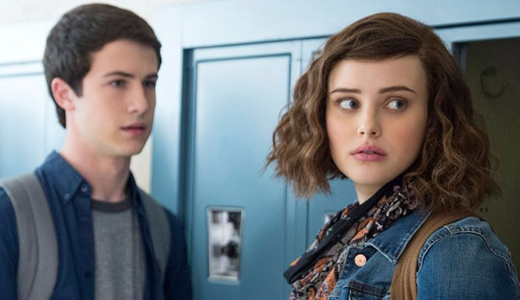Underneath the reviews, the blog posts, the vodcasts and Twitter missives, Plugged In is built on one basic premise: Media matters.
The entertainment we consume—the stories we watch and read and listen to and play—impact us deeply, and on levels we might not fully realize. Obviously, the relationship between entertainment and its real-world impact is complex and extraordinarily difficult to parse. Some would deny any impact at all. And yet instinctively we know it’s there: Critics praise “important” movies. Journalists explore the influence of long-running television shows on society. Directors and actors talk about how they hope a given project “makes people think” or “starts a conversation.” To deny the influence of entertainment is like denying the influence of the weather.
And this week, we saw tragic, albeit, tentative new evidence: A new study by the National Institute of Mental Health found evidence that the Netflix show 13 Reasons Why might’ve led to a rise in real-world suicides.
This wasn’t unexpected, really. Mental health officials warned that the show—which was predicated on the suicide of a 17-year-old girl and which graphically depicts how she took her life—might have a negative impact on suicidal youth who watched it. Indeed, in the aftermath, online searches and doctor visits related to suicide spiked. Anecdotally, a few parents—grieving the loss of their own children to suicide—alleged that 13 Reasons Why contributed to their son’s or daughter’s death.
Still, the study itself is pretty sobering.
The first season of 13 Reasons was released in March of 2017. That April, according to the study, 190 tweens and teens took their own lives—a 30% increase compared to the April suicide rate for the five previous years. Suicide rates in June and December of that year went up, too. In all, the study found that 195 more teens and tweens killed themselves in the months following the show’s release than would’ve been statistically expected. The increase was especially significant in teen males.
We should note here that it’s way too simplistic to say that 13 Reasons Why killed these kids. Researchers weren’t looking for any sort of cause-and-effect pattern with the study, instead calling the link a “weak association between the show and suicide in boys.” And as the Los Angeles Times notes, teens had other real-world events that might’ve triggered suicidal inclinations. Soundgarden’s Chris Cornell and Linkin Park’s Chester Bennington both killed themselves that year, too.
Netflix seems loathe to turn away from 13 Reasons. After its CEO famously dismissed the show’s triggering potential by saying “nobody has to watch it,” the streaming service changed tack during its second season, posting trigger warnings before each episode and offering (rather sparse) resources to those dealing with the show’s myriad issues. Now, Netflix seems to want to find the line between thoughtful concern and defending its lucrative, uber-buzzy show.
“We’ve just seen this study and are looking into the research, which conflicts with last week’s study from the University of Pennsylvania,” a Netflix spokesperson told Gizmodo. “This is a critically important topic, and we have worked hard to ensure that we handle this sensitive issue responsibly.”
I would agree with Netflix on at least one point: Suicide, and teen mental health in general, is indeed a critically important topic. Every week, it seems, we see new research suggesting that children and teens are struggling with depression and anxiety as never before. And, if today’s youth are anything like I was when I was a depressed teen, there’s a real danger of them not telling anyone.
If done responsibly, entertainment can potentially be a catalyst to spur healthy conversation between at-risk youth and their parents (or other adults). But the key words here are done responsibly. And that entails upending the traditional entertainment model. The first question creators and producers have to ask is, “Will this help?” Not, “Will this make us more money?” That framework runs counter to everything that modern entertainment has been built on, of course. But in the case of teen mental health, it’s absolutely necessary. After all, it just might be a matter of life and death.
Editor’s Note: Plugged In has watched and reviewed every episode of Netflix’s 13 Reasons Why, and we’ve put together a comprehensive discussion guide to the show that you can access here. We also offer many resources centered on preventing teen suicide through our Alive to Thrive program.






Recent Comments